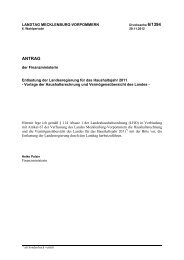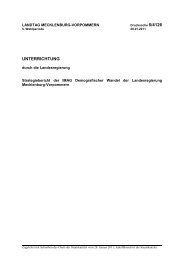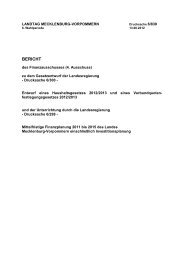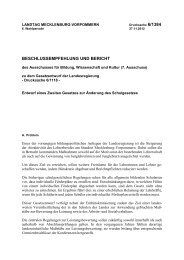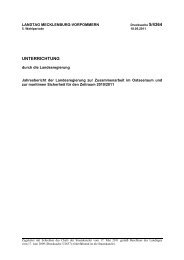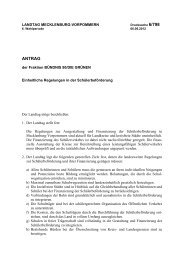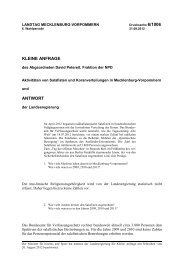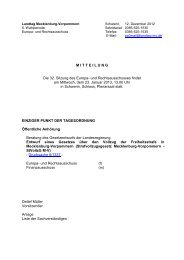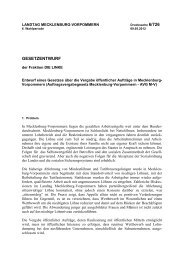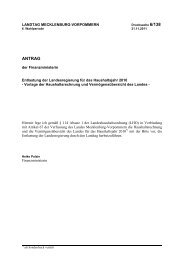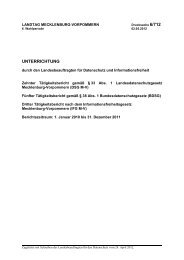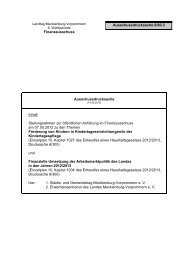Baltic Rim Economies - Baltic Port List
Baltic Rim Economies - Baltic Port List
Baltic Rim Economies - Baltic Port List
You also want an ePaper? Increase the reach of your titles
YUMPU automatically turns print PDFs into web optimized ePapers that Google loves.
Expert article 902 <strong>Baltic</strong> <strong>Rim</strong> <strong>Economies</strong>, 21.12.2011 Quarterly Review 5�2011<br />
Russia towards energy saving and renewable energy<br />
By Viesturs Ozolins<br />
Global climate change has been a much debated subject, but<br />
question remains that the global climate is changing, with possibly<br />
grave consequences for human societies. Technologies for<br />
energy efficiency and renewable energy have become recognized<br />
as an important part for reducing carbon dioxide (CO2) emissions<br />
and mitigating global climate change.<br />
Russia is one of largest contributor to total CO2 emissions in<br />
the world, together with the United States and China. With the rise<br />
of transnational environmental problems like global climate<br />
change, attention has been focused on international technology<br />
transfer as an instrument to mitigate these problems. Historically,<br />
Western technology transfer and cooperation played a significant<br />
role in some key aspects. International experience transfer<br />
leading to energy efficiency improvements and greater deployment<br />
of renewable energy could lead to substantial reductions of CO2<br />
emissions in Russia.<br />
Despite huge existing technical-economic opportunities for<br />
energy efficiency and renewable energy, and despite advanced<br />
Russian technological capabilities, many transaction barriers limit<br />
technology transfer and investment in technologies for energy<br />
efficiency and renewable energy. Same time outdated standards<br />
created in Soviet times what are still used in energy sector quite<br />
often tight the hands for efficient project realizations.<br />
There are good reasons why energy use is inefficient relative<br />
to that in Western countries. Some of these reasons can be found<br />
also in developed and developing countries. For example,<br />
equipment’s and infrastructure were designed, developed, and<br />
produced during a period when energy was extremely cheap.<br />
Undervalued inputs led to much economic inefficiency in general.<br />
Russia’s President has stated lately that energy efficiency and<br />
energy conservation are among the 5 strategic priorities for<br />
Russia’s technological development. In line with these<br />
governmental initiatives, this topical was served as an international<br />
platform for the exchange of practical experience and know-how<br />
gathered by companies and experts in the field of energy<br />
conservation and energy efficiency.<br />
Company Gebwell Ltd. is a Finnish company specialized in<br />
energy saving and environment friendly heating and cooling<br />
system development, engineering and production who works hand<br />
in hand with Russian partners for energy efficiency projects. The<br />
vast product selection includes ground source heat pumps, energy<br />
accumulator systems and district heating substations.<br />
As an expert in district heating field and renewable ground<br />
source energy technologies I will analyze several aspects of these<br />
systems and perspectives in Russia.<br />
District Heating System<br />
District heating is one of the most used heating systems in Russia<br />
but the system efficiency is very low, supply and distribution pipes<br />
in many cases are old and poorly insulated up to now. Heating<br />
equipment’s in buildings are old and poorly maintained. District<br />
heat distribution systems are poorly controlled (if at all). And<br />
opening windows in wintertime is often still the in many cases only<br />
method to regulate heat comfort.<br />
Energy efficiency and rehabilitation in district heating systems<br />
represent very high domestic priorities for Russia lately. Even with<br />
simply automation of heating processes large amount of energy<br />
could be saved. The main goal of such automation is to optimize<br />
heat production and distribution according to real-time fluctuations<br />
in heat demand, hydraulic conditions, and outdoor temperatures.<br />
Such control should take place in the heat plants, substations, and<br />
individual buildings and apartments.<br />
Russian authorities are beginning to recognize the<br />
unsustainability of an economic model based on natural resource<br />
extraction, and to understand that improvements in energy<br />
efficiency would boost long-term economic competitiveness.<br />
Technologies for improving the heating systems within existing<br />
buildings include building level energy metering units, and<br />
automation for controlling the heat entering the building,<br />
61<br />
apartment-level heat meters and thermostatic radiator valves for<br />
controlling the heat to individual apartments, heat balancing valves<br />
for balancing the heat flows within the building, pipe insulation, and<br />
new substations for energy distribution.<br />
Up to now the large amount of buildings in Russia connected<br />
to district heating system are not equipped with simple heat<br />
metering equipment’s what basically should be one of the first<br />
steps towards energy saving measures. Same time building<br />
thermal envelopes also can be improved. Measures include<br />
additional roof and wall exterior or interior insulation, window<br />
replacement and mechanical ventilation systems.<br />
Improvements to district heating systems include combustion<br />
controls and analyzers at heat plants, automation systems for<br />
distribution networks, variable speed drives on motors and pumps,<br />
pipe insulation, new pipelines, and new individual substations.<br />
During last 10 years there has been many renovation projects<br />
implemented in district heating sector and building level as well,<br />
but this is just a small part large Russian energy system. Thanks to<br />
Russian government new energy efficiency law has been<br />
introduced with certain measures towards energy efficiency.<br />
Renewable Energy and Ground Source Energy<br />
Renewables, this has become one of the most often used terms in<br />
energy sector worldwide in last years. I think this is one of future<br />
perspectives also in Russia, but due to relatively cheap energy<br />
available this technology has not been so popular up to now.<br />
One of the most popular and promising renewable energy<br />
technologies for heating sector in Northern Europe is ground<br />
source heat pumps and according today’s situation it is less costly<br />
heating production system.<br />
Up to now this technology has not been very popular, but<br />
Russian energy price growth in domestic market has led to heat<br />
pump market development due to its efficiency and environment<br />
friendly technology. Many people do not know that ground source<br />
systems can be used not only for heating production but cooling<br />
applications as well. For example one such kind of ground source<br />
system is able increase cooling efficiency many times comparing<br />
with regular air conditioning systems. Due to above mentioned this<br />
technology becomes more and more popular also in Russia due to<br />
its efficiency.<br />
Learning from experience gained during many years<br />
participating in energy saving project realization in Europe, Russia<br />
and China, the key factor is hided in heads of citizens as energy<br />
efficiency project should start there. Up to now it has been<br />
significant problem in Russia, but due to rapid energy prices<br />
increasing society is forced to think about energy saving measures<br />
also on consumer level.<br />
Viesturs Ozolins<br />
Export Director<br />
Gebwell Ltd<br />
Finland<br />
� Pan-European Institute � To receive a free copy please register at www.tse.fi/pei �



